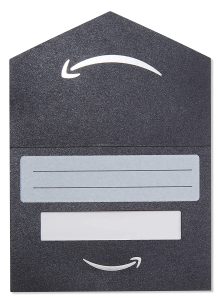Smart cards have emerged as powerful tools for enhancing identity management in various sectors. They offer robust security features, secure data storage, and cryptographic capabilities that make them ideal for verifying and managing individual identities. Let’s take a deeper look at how smart cards contribute to identity management:
1. Secure Identity Verification: Smart cards play a pivotal role in verifying individuals’ identities. By incorporating biometric data (such as fingerprints or iris scans) and personal information, smart cards enable accurate and tamper-proof identification. This is particularly crucial in applications like national ID cards, driver’s licenses, and access control systems.
2. Multi-Factor Authentication: Smart cards enhance identity management by providing multi-factor authentication. Users typically require something they possess (the smart card) and something they know (like a PIN) to access systems, ensuring higher security levels compared to password-only methods.
3. Biometric Integration: Combining smart cards with biometric data adds an extra layer of security. Biometric features are stored securely on the card, ensuring that only the authorized person can use it. This strengthens identity management across various applications, from border control to physical access control.
4. Centralized Identity Storage: Smart cards act as secure containers for personal information, reducing the need for multiple identity documents. This simplifies identity management for both individuals and organizations by centralizing data storage.
5. E-Government Services: Smart cards enable citizens to access a wide range of e-government services securely. These services can include tax filing, social benefits application, voting, and accessing official documents—all while ensuring data privacy and security.
6. Secure Digital Signatures: Smart cards can facilitate the creation of legally binding digital signatures. This is crucial for secure document signing, contract management, and other identity-dependent transactions.
7. Healthcare Identity and Privacy: In the healthcare sector, smart cards enhance patient identity management by securely storing medical records, prescriptions, and insurance information. This ensures accurate medical treatment and protects patient privacy.
8. IoT Device Authentication: Smart cards can be used to authenticate individuals interacting with Internet of Things (IoT) devices. This is especially relevant in scenarios where secure user identification is required to control connected devices.
9. Online Identity Verification: Smart cards enable individuals to securely access online services and platforms with strong authentication methods. This reduces the risk of unauthorized access and identity theft.
10. Access Control and Workforce Management: Smart cards are extensively used in access control systems for secure building entry and workforce management. They help organizations track employee attendance, restrict access to sensitive areas, and maintain a secure working environment.
11. Personal Data Ownership and Privacy: Smart cards can empower individuals with greater control over their personal data. Users can choose what information to share and with whom, enhancing privacy while interacting with various services.
12. Travel and Border Control: Smart cards facilitate efficient and secure border crossings by storing biometric data, travel history, and other relevant information. This speeds up immigration processes and enhances security.
In conclusion, smart cards have a profound impact on identity management by offering a combination of strong authentication, secure data storage, and seamless verification processes. Their versatility makes them a valuable tool across various industries, enabling individuals and organizations to manage identities securely and efficiently.


























